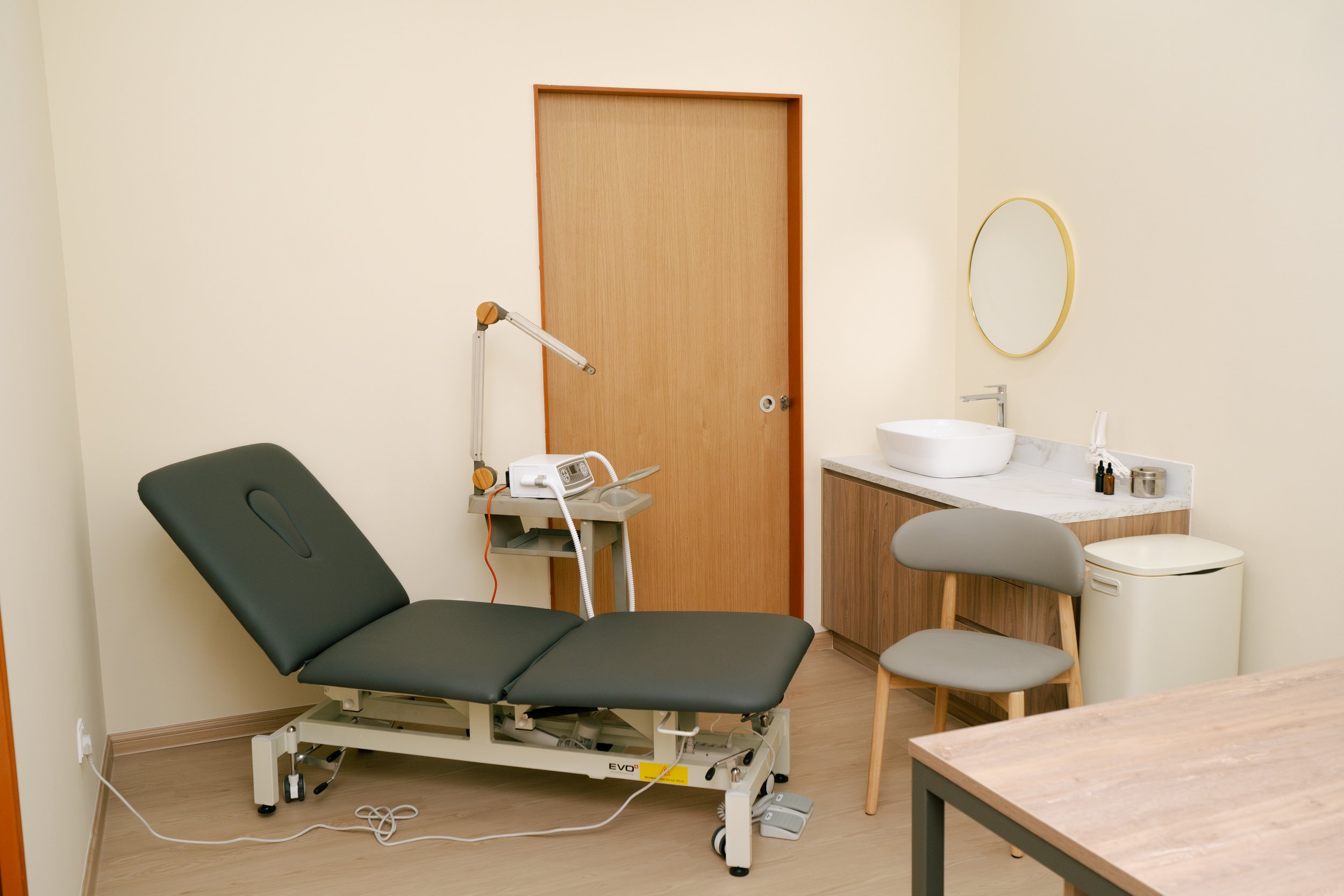
Sever’s Disease
What Is Sever’s Disease?
Sever’s disease is a common cause of heel pain in active children, usually between ages 8 to 14. It happens when the growth plate in the heel becomes irritated—often from sports, jumping, or running. Children may feel pain or soreness at the back of the heel, especially after activity. The good news is it usually goes away once the heel bone finishes growing.
If your child is limping or complaining of heel pain, we can help with proper diagnosis and treatment.
Common Causes
Sever’s disease is caused by repetitive stress on the heel bone during growth. When the bones grow faster than the surrounding muscles and tendons, tightness in the Achilles tendon pulls on the soft heel bone, leading to inflammation and pain. It could be due to:
Sports involving running, jumping, or sudden stops and starts (e.g., football, basketball, badminton, gymnastics)
Wearing unsupportive or worn-out shoes
Increased physical activity during growth spurts
Flat feet, high arches, or other biomechanical issues
Running or training on hard surfaces
Boys are more commonly affected than girls
Signs & Symptoms
Look out for these common signs of Sever’s disease:
Pain at the back or bottom of the heel, usually on one or both feet
Pain that worsens after sports or prolonged activity
Limping or avoiding putting pressure on the heel
Walking on tiptoes to reduce heel pressure
Mild swelling, redness, or tenderness at the back of the heel
Stiffness in the foot, especially in the morning or after rest
How Sever’s Disease Is Diagnosed
At KL Foot Specialist Podiatry, diagnosis is made through:
A detailed clinical history and physical examination
Assessment of gait, posture, foot structure, and range of motion
Imaging (like X-rays) is not usually required unless a fracture or other serious condition is suspected
Treatment Options
At KL Foot Specialist Podiatry, our podiatrist provides:
Footwear & Activity Advice: Guidance on choosing the right sports shoes and modifying training schedules
Gait & Biomechanical Assessment: We check your child’s walking pattern, posture, and foot alignment to identify any contributing factors
Custom Orthotics: Prescription orthotics can support the arch and improve alignment. This helps to distribute pressure more evenly across the foot
In-shoe Modifications: Heel lifts, cushioning, or offloading pads to reduce tension on the growth plate
Strengthening & Stretching Programs: Child-friendly exercises to improve flexibility and strength in the lower limbs, promoting faster recovery and prevention
DolorClast® High Power Laser Therapy: Is often used for tendon and growth plate injuries in children and teens. Most children feel less pain after just a few sessions, and it helps them return to sport or activity faster
What Happens if Left Untreated?
If Sever’s disease is not managed properly, heel pain can worsen and affect a child’s ability to walk, run, or play sports. Persistent strain on the growth plate may lead to long-term discomfort, poor foot mechanics, or compensations in walking that can cause knee or hip pain over time.
When to See a Podiatrist
You should see a podiatrist if your child complains of heel pain during or after activity, starts limping, or avoids putting weight on the heel. Early treatment can relieve pain faster and prevent the condition from affecting your child’s movement and confidence in physical activity.
-
The best treatment is a combination of rest, activity modification, supportive footwear, and custom orthotics. At KL Foot Specialist Podiatry, we also provide stretching and strengthening programs, as well as DolorClast® High Power Laser Therapy, which reduces pain and speeds up healing without medication or injections.
-
Custom orthotics can be very helpful, especially if your child has flat feet, high arches, or abnormal walking patterns. They support the arch, reduce pressure on the heel, and offload stress from the Achilles tendon.
-
Yes. Laser therapy is a safe, non-invasive treatment used in many sports and paediatric clinics. It reduces inflammation and stimulates healing at the heel without discomfort. Most children feel relief within a few sessions.
-
It depends on the severity of the symptoms. In mild cases, activity can be modified rather than stopped. In more painful cases, a short break from impact activities is recommended. We’ll guide you on when and how your child can safely return to sport.
-
With proper treatment, most children recover within a few weeks to a few months. The condition typically resolves completely once the heel growth plate matures, but early care can significantly speed up recovery and reduce discomfort.
-
Yes, symptoms can flare up again during growth spurts or with sudden increases in activity. Supportive footwear, proper warm-ups, and using custom orthotics can help prevent recurrence.
Frequently Asked Questions
Book Your Child’s Heel Pain Assessment Today
If your child is struggling with heel pain from Sever’s disease, early treatment can make all the difference. At KL Foot Specialist Podiatry, we provide expert, evidence-based care to help your child recover faster and stay active. Reach out today to schedule a personalised assessment.
